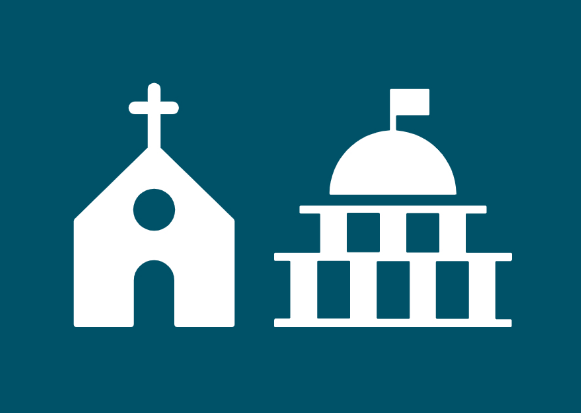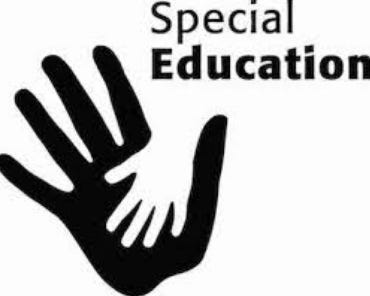Education Day: an update on religious instruction in UPK, thoughts on troublesome students, and lastly join me in supporting a bill that provides an alternate licensure pathway to special ed teachers.
An update: the state will not be (at least for now) banning religious instruction during its universal pre-K program.
I posted about this earlier (and noted my ambivalence about whether banning was proper), but it seems that the state is now backing off its initial plan to ban religious instruction during the state-funded preschool time.
Couldn't find a reason for backing off in the article below. Quoting, "State officials declined to comment Thursday about why they eliminated the ban on religious instruction in the proposed preschool rules."
I gather from reading that it may involve waiting on the outcome of the lawsuits (unrelated to instruction) over religious discrimination from some preschools, but maybe not too.
More details below.
https://www.chalkbeat.org/colorado/2024/01/05/colorado-universal-preschool-religious-instruction-ban-reversal/
Related:
School enrollment in most places is down in Colorado. An effect of school choice?
https://www.coloradopolitics.com/business/student-enrollments-drops-statewide-but-up-in-denver/article_6c846876-de0a-5a5d-a2ec-3c023d2d7656.html#google_vignette
You know what I wondered reading the article below? Perhaps it's because I'm a teacher, but I kept wondering about the other students in the room.
What do they deserve? What consideration do they merit?
I have not made my feelings regarding the idea of a "school to prison" pipeline a secret. It is not accurate; put another way, it's a disparity that is being marketed as discrimination. It also completely sidesteps any notions of individual choice and responsibility for said choices.
I won't go into that issue here, if you're curious, read back in the stacks on this post.
What I want to share with you in this post is my perspective as someone who has actually taught, and taught for a long time, and I want to raise the questions I wrote above for consideration.
If you read the propaganda piece (oops, "article") which was reprinted in the Sun, you will see a profile of some parents and children who have not had a smooth educational experience. It's clear from the parents that got profiled that they love their children and want the best for them; they wouldn't be normal, functioning humans if they didn't.
If this were a case of a single student with individual tutors teaching him or her, things would be a lot more clear cut. If the tutor couldn't handle the kid, that tutor has failed and you try again. But here we're talking about students who must fit into a group educational setting. We are talking about how it is that you as an educator try to manage a room with more than one individual in it.
And we're talking about how sometimes you as a teacher either struggle mightily or you can't.
Looking at some of the behaviors of the children profiled, and not commenting either way on that child's voluntary control of that behavior, I have to admit that if I had one of these kids in my class I would struggle.
I would struggle to try and manage them. I would struggle to try and TEACH them. And I would struggle to try and keep their behavior from preventing others from learning.
This is the point. This is the point that is missed by these parents. This is the point that is missed by Progressives and, apparently, this is the point missed by progressive "reporters" who write for the Colorado Trust.
Both in this context and in the context of other issues (homelessness comes to mind), who considers the rights of other students to be able to learn unimpeded (or to be able to walk along a sidewalk they help pay for that is free of feces and used drug paraphernalia)?
Life is a balancing act and humans, when they must cooperate on things, must find ways to fairly weigh the interests of one group with another, the interests of one individual with another, and the interests of one individual with a group.
When we focus on made up concepts like the school to prison pipeline, we lose sight of that important balance and leave some without a voice.
https://coloradosun.com/2023/12/25/school-discipline-can-lead-colorado-students-into-justice-system/
Let's stay on education for one more today.
During the Assembly session, I regularly do a crawl of various legislators' pages to see if there are bills that interest me--things to share and/or speak up on.
The bill linked below is one such bill.
God bless the people that choose to work as special education teachers. I have usually found them to have big hearts and an interest in working with students that require some extra attention.
But by choosing special ed, they have bought themselves a career that involves a HUGE amount of extra work. Having only seen it from the outside, I don't know all the details but I know that compared to regular teaching, there is more paperwork, more rules to deal with, more monitoring, just more.
Small wonder that these jobs are hard to fill. That's what drew me to the bill below. We should, in reasonable ways, be trying to make it easier on people who choose to take on the challenge.
As things stand now, becoming a special ed teacher involves getting an education in the field that is (for lack of a better term) "purpose built", that is you must take a program from start to finish that prepares you specifically for the field. There is not, to my knowledge, any sort of alternative licensure program.
Let me contrast that with how things can work for other teaching disciplines.
If you want to be a math teacher, you can go to get a degree in mathematics education, get certified and become a math teacher.
Or, you can do something similar to what I did: if you have a degree with enough credit hours in the content area (enough hours spent learning math), but no degree in education, you can participate in an alternative licensure program where you learn how to teach and then get certified.
The bill linked below offers something similar to the latter path to those that might have an interest in becoming a special ed teacher. Quoting the bill's summary:
"The bill requires the department of education (department) to establish an additional pathway for an educator to obtain an endorsement. To receive the endorsement, the educator must hold a valid teaching license other than an initial license; take and pass the appropriate content-based exams, as determined by the department; and complete a specialized induction program that meets the standards and criteria established by rule of the state board of education. Upon the educator's completion of all the components of the additional pathway, the department shall grant the educator a professional endorsement for instruction in special education or early childhood special education."
This is a bill I intend to follow and speak up for (either by email or testimony depending). As of this writing it was assigned a committee, but no date for its committee hearing yet.
If you would also like to follow the bill, bookmark the link below and check back every couple days or so, watching the committee link.
https://leg.colorado.gov/bills/hb24-1087





Thanks Corey! I found the Chalkbeat article about dropping the ban on religious instruction in UPK interesting. It’s framed as though it was always the intent to bar using public funds for religious instruction, but I don’t believe that intent is found in the enabling legislation. At least, I searched the bill for “religious” and none of the 5 references applied to instructional content.
This bill was posed as truly a parent-choice program, and its language is specifically inclusive of faith-based schools. To ban what the article references as religious instruction (e.g., songs, religious stories, prayers) would significantly alter the curriculum, serving as a de facto ban on faith-based schools from participating in the program, which is the opposite of the stated program intent.
It seems dishonest to me, if the intent truly was to not fund any activities that are religious, that the bill included faith-based schools in the first place.